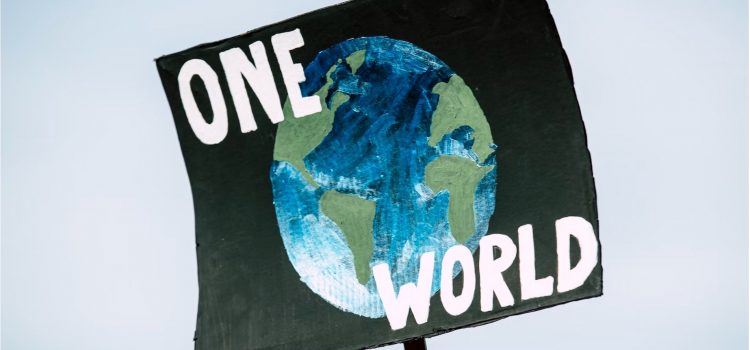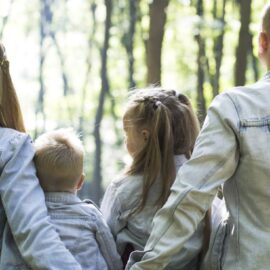

This article gives you a glimpse of what you can learn with Shortform. Shortform has the world’s best guides to 1000+ nonfiction books, plus other resources to help you accelerate your learning.
Want to learn faster and get smarter? Sign up for a free trial here .
Do you want to learn more about global warming? What are the best books on climate change?
Climate change is a pressing issue that politicians and scientists debate. If you want to be more educated about the topic, there are many books written by experts that can give you a better understanding of climate change.
Here are eight books on climate change you should read to stay informed.
Books on How Climate Change Is Shaping the World
There are many misconceptions about climate change and its impact on the world. If you want to know the truth about how climate change truly affects us, you need to read these informative books.
From climate extinction to the effects of doubt-mongering, check out these books on climate change’s impact on society and the environment.
In The Sixth Extinction, journalist Elizbeth Kolbert argues that by drastically changing the shape of the earth and the composition of the atmosphere, humans have set in motion a sixth mass extinction that may one day be our undoing. The book revisits five previous mass extinction events spanning five hundred million years and compares them to the rapid, widespread extinctions underway today of a range of species including frogs, corals, birds, and rhinos. These extinctions are a consequence of human-created global warming and ocean acidification, the destruction and fragmentation of forests, and the spread of invasive species around the world. What’s more, these actions will determine the course of life on the planet long after our species is gone.
According to progressive media and politicians, climate change constitutes an existential threat to humanity, requiring drastic cuts in carbon dioxide emissions to avoid catastrophe. However, Bjorn Lomborg argues that, while climate change poses a significant threat, it’s not cataclysmic.
In his 2020 book, False Alarm, Lomborg concedes that climate change will have a notable impact if left unchecked. However, he argues that climate activists’ proposed approaches, like sharply reducing fossil fuel consumption, have unintended economic costs that must be balanced with the effects of climate change alone. Instead, Lomborg outlines several more modest recommendations that, he claims, represent the best approach to climate change.
In this book, Lomborg presents arguments about the impact of climate change, along with assessments of unsuccessful approaches to climate change and his suggestions for alternatives.
Merchants of doubt are people or organizations who discredit science that threatens their agenda or ideology. The first merchants of doubt were members of the tobacco industry—when scientists discovered that smoking caused cancer, that was bad for businesses. It was also bad for capitalism in general because it suggested that the market wasn’t self-regulating, and the lack of regulation was killing people. Other defenders of the free market started using the tobacco industry’s techniques, such as funding new (and hopefully more favorable) studies or calling for balanced media coverage.
In Merchants of Doubt, science historians Naomi Oreskes and Erik M. Conway study the doubt-mongering techniques used in several other important “debates”—nuclear disarmament, acid rain, the ozone layer, climate change, and the pesticide DDT. These techniques are still in use today and spread false information about science that influences what people believe about climate change.
Books on Stopping or Adapting to Climate Change
The previous books discussed how climate change and doubt-mongering are affecting the world, but how do we fix these problems? These best books on climate change offer solutions to growing concerns about the environment from scientific, economic, and philosophical perspectives. One book even offers a different solution for climate change: learning how to adapt to it.
How to Avoid a Climate Disaster
How to Avoid a Climate Disaster is a New York Times best-selling, no-nonsense, apolitical discussion of climate change. Bill Gates’s decades of philanthropy inform his writing on the urgent need to curb emissions while still encouraging development. Complementing his empathetic approach to reducing carbon emissions, he uses his experience in the technology industry to highlight the most practical technology-based strategies for reducing global carbon emissions with a straightforward assessment of their challenges and limitations.
While Gates discusses several promising emergent sources of green energy throughout the book, he also stresses the need to reduce emissions quickly. Therefore, this book focuses on the technologies and strategies he discusses that are most feasible today.
In The Deficit Myth, economist Stephanie Kelton contends that nearly all of the public discourse about national debts and deficits gets the facts entirely wrong. A leading proponent of the heterodox economic school of thought known as Modern Monetary Theory (MMT), Kelton champions more aggressive deficit spending by arguing that the U.S. government could finance any program it wishes to create. She advocates a more holistic view of the economy—contending that we ought to focus on poverty reduction, combating climate change, and building a more just and equitable society as the true measures of economic success, rather than focusing solely on the narrow budgetary impacts of legislation.
Kelton writes that a progressive, well-designed tax system can help reduce inequality and steer social policy in a progressive direction that leads to better and healthier outcomes for society. For example, taxing industrial pollution makes it more expensive for companies to damage the environment by dumping waste into the community’s air and water—creating an incentive for them to use more efficient and sustainable production processes that create less waste.
In a society troubled by overconsumption and disconnection, what are plants, Anishinaabe Indigenous worldviews, and science all trying to teach us about restoring balance? In Braiding Sweetgrass, Indigenous ecologist Robin Wall Kimmerer explains how these three sources of knowledge show us how to flourish through mutual care with other people and the natural world.
As our industrial society puts increasing stress on ecosystems and climate change threatens the well-being of us all, we must shift from a consumption and competition mindset to one recognizing our interdependence. Then we can practice mutual care to enable all living beings to thrive. In this book, Kimmerer explores how models of mutual care evident in plants, Indigenous culture, and science form better relationships between the environment and humans.
Are trees competitive or cooperative? In Finding the Mother Tree, ecologist Suzanne Simard delves into this question. Scientists and foresters have typically thought of trees as competing for water, sunlight, and nutrients, and they’ve favored growing marketable species while eliminating presumed competitors. However, ecologist Suzanne Simard explains in Finding the Mother Tree that trees in a forest are interconnected—they communicate and share resources through a complex underground network of fungi.
In this book, you’ll learn how Simard’s research has led to a shift in thinking about ecological relationships. She explains how fungi work to connect the plant life in the forests, how “Mother Trees” take care of their communities and their offspring, and why the prevailing competition paradigm is shortsighted. This all culminates in Simard’s argument that trees are incredibly similar to humans, and should be treated as such to improve environmental protection.
These days, the world is moving faster than ever. Every day new scientific discoveries are announced, conflict breaks out somewhere in the world, and nature and the climate behave unexpectedly. If you feel overwhelmed or destabilized by this, you’re not alone—no period in the history of humanity has ever been subject to such quickly changing conditions as today.
In Thank You For Being Late, author, journalist, and columnist Thomas Friedman explains how these conditions arose—the three forces that shape the world, technology, globalization, and climate change, all accelerated at once—and how we can adapt to them.
Wrapping Up
Our planet is currently facing many frightening environmental problems. The first step in making sustainable change is becoming aware of these problems. Whether you’re an active advocate for climate change awareness or know little about the crisis, these books about climate change shed light on the issue.
Are there other books on climate change worth mentioning on this list? Let us know in the comments below!

Want to fast-track your learning? With Shortform, you’ll gain insights you won't find anywhere else .
Here's what you’ll get when you sign up for Shortform :
- Complicated ideas explained in simple and concise ways
- Smart analysis that connects what you’re reading to other key concepts
- Writing with zero fluff because we know how important your time is






